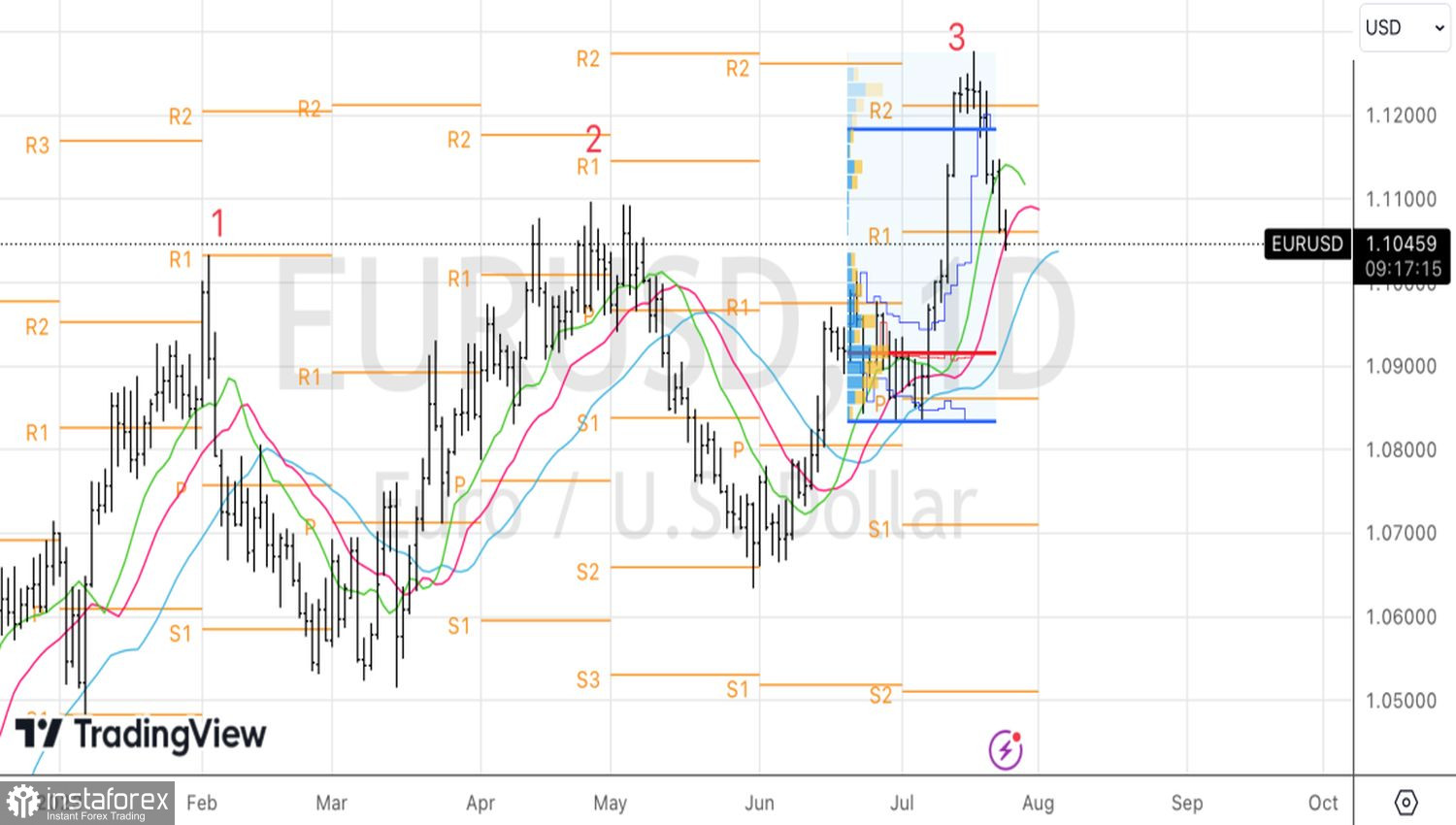Germany remains in a recession, and Spain is dealing with a political crisis. Moreover, the likelihood of a federal funds rate hike to 5.75% in 2023 has returned to levels seen before the June US inflation data release. In such circumstances, it is difficult for EUR/USD not to decline, especially considering the record rate at which lending volumes in the Eurozone are shrinking due to the ECB's most aggressive monetary restriction in history.
The German IFO Institute indicates that Germany is still experiencing a decline, making it challenging for the country to recover from this slump. The business climate index has been declining for the third consecutive month, and the dynamics of the expectations index disappoint Bloomberg experts. This points to significant difficulties in the leading economy of the Eurozone, which should ideally drive growth for the entire currency bloc but is currently acting as a hindrance.

On the other hand, the Spanish economy is showing signs of recovery from its slump. However, the results of the recent elections raise serious concerns. While the People's Party won the most seats, more is needed to form a majority. The support of regional parties in Catalonia and the Basque Country seeking greater autonomy from Madrid will be necessary to form a majority government. This situation evokes memories of 2017 when Barcelona held an independence referendum, leading to the Spanish government's declaration of independence and subsequent revocation of Catalan autonomy, which then directly governed the region.
The negative news from Germany and Spain is further aggravated by the review of bank lending in the Eurozone. The pace of lending has sharply decreased due to a 400 basis point increase in deposit rates since the beginning of the cycle. Consequently, business activity and the overall business climate have declined as well. The currency bloc is now on the verge of a recession, making expecting a strong rise in EUR/USD unrealistic.
The European region's economy is undoubtedly weaker than the US, which is much stronger. Positive macroeconomic reports following the US labor market statistics have increased the likelihood of a federal funds rate hike from 5.75% in 2023 to over 30%. Before the release of consumer price data for June, the probability was 34-36%, but it then sharply dropped to 18%. This shifting indicator has played a role in driving the EUR/USD rally. The pair has almost returned to the levels from which it started its upward trend.

Investors are cautiously observing the Federal Reserve as the recent rally in the stock market and the decline in Treasury bond yields are easing financial conditions. These developments pose challenges to the Central Bank's fight against inflation. Consequently, the market expects a "hawkish" rhetoric from the Federal Reserve, and if such a stance is delivered, the US dollar may strengthen even further.
From a technical perspective, the momentum of EUR/USD's peak is gaining strength. The pivot level at 1.106 has not halted its movement. Now, traders are looking for a rebound from 1.101 or a return above 1.106 and 1.1085 to establish long positions.
 English
English 
 Русский
Русский Bahasa Indonesia
Bahasa Indonesia Bahasa Malay
Bahasa Malay ไทย
ไทย Español
Español Deutsch
Deutsch Български
Български Français
Français Tiếng Việt
Tiếng Việt 中文
中文 বাংলা
বাংলা हिन्दी
हिन्दी Čeština
Čeština Українська
Українська Română
Română

